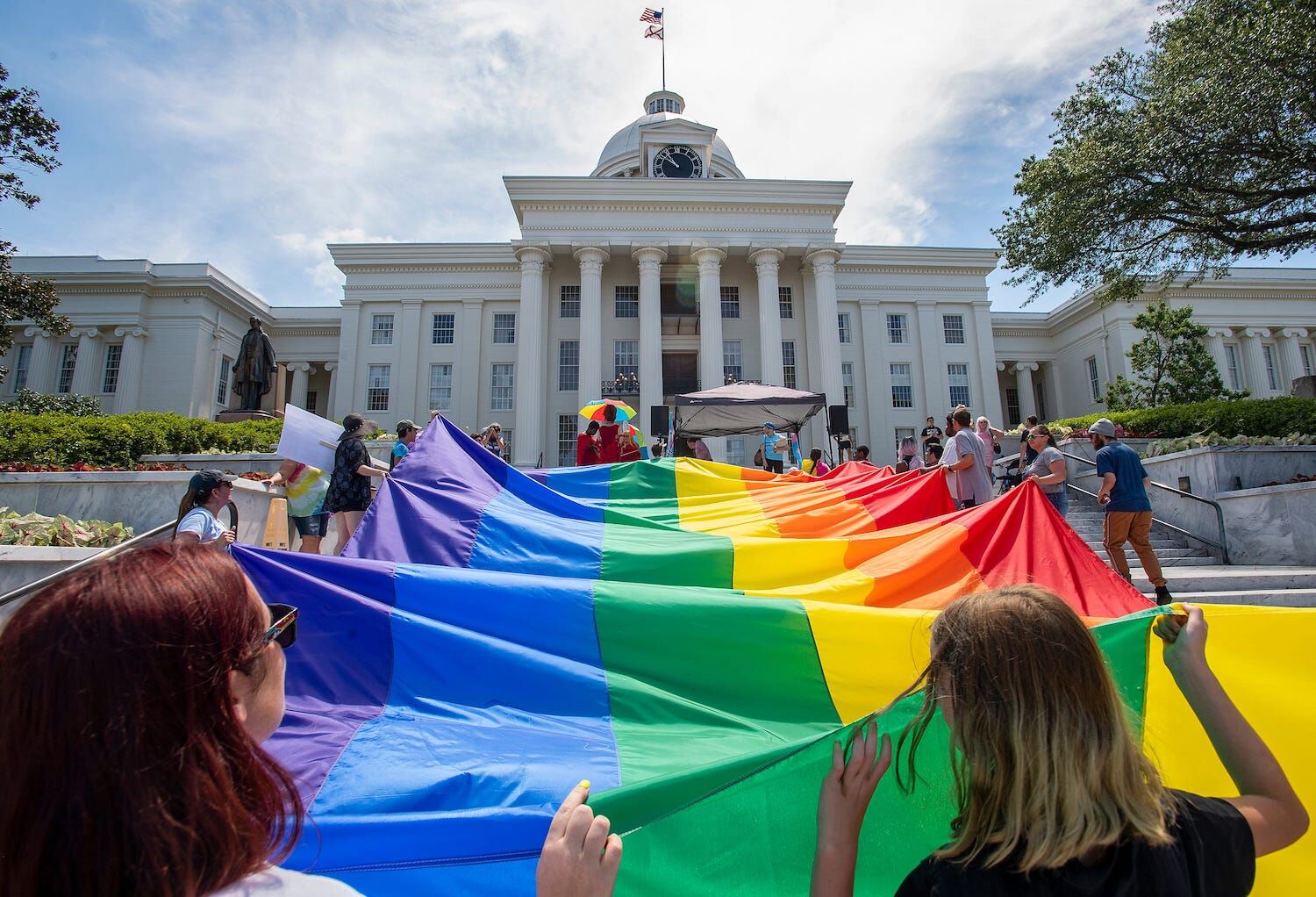
Marchers carry a rainbow flag to the Alabama Capital during the 2019 Pride March and Rally Photo: Mickey Welsh / Advertiser/ via IMAGN
A federal court upheld Alabama’s ban on gender-affirming care in a 173-page decision that argued that parents do not have a right to get their kids gender-affirming care that’s “deeply rooted in the nation’s history and traditions.”
A three-judge panel had already sided with the state of Alabama on its ban on gender-affirming care. In this week’s decision, a majority of the 11 judges on the U.S. 11th Circuit Court of Appeals declined to reconsider the three-judge panel’s decision.
Related:
Two appointees of President Donald Trump, U.S. Circuit Judges Barbara Lagoa and Andrew Brasher, participated in the ruling. Lagoa wrote the original opinion from the three-judge panel as well as a concurring opinion in the full court’s decision and drew from the U.S. Supreme Court’s decision in Dobbs v. Jackson Women’s Medical Center, where Justice Samuel Alito wrote that the 14th Amendment to the U.S. Constitution does not protect any right “not deeply rooted in the nation’s history and traditions.”
Stay connected to your community
Connect with the issues and events that impact your community at home and beyond by subscribing to our newsletter.
Lagoa further said that there is no historical record that affirms a parental right for their children to receive gender-affirming care and that the ban did not violate the 14th Amendment’s Equal Protection Clause.
U.S. Circuit Court Judge Robin S. Rosenbaum – appointed by former President Barack Obama – wrote the dissent. Rosenbaum was joined by fellow Obama appointees U.S. Circuit Court Judge Jill A. Pryor and partially joined by U.S. Circuit Court Judge Adalberto Jordan.
Rosenbaum said that Lagoa used “unprecedented methodology,” which instructed judges to look at how the treatment was considered in 1868 when the 14th Amendment was ratified. In her dissenting opinion, Rosenbaum wrote that “in the states of Alabama, Florida, and Georgia, blistering, blood-letting, and leeches are in, but antibiotics, antivirals, and organ transplants are out.”
U.S. Circuit Court Judge Charles R. Wilson also dissented in a separate opinion, joined by Jordan. Jordan wrote a dissenting opinion, joined by Rosenbaum and Pryor.
The 2022 ban says that it is a felony, carrying a penalty of up to 10 years in prison, for physicians to prescribe puberty blockers or hormones to transgender individuals under the age of 19. The law also prohibits genital surgeries, though genital surgeries are not performed on minors in Alabama.
The Southern Poverty Law Center, the National Center for Lesbian Rights, GLBTQ Legal Advocates & Defenders, and the Human Rights Campaign, which represented the plaintiffs in the case, were disappointed by the ruling but encouraged by the dissenting opinions, they said in a Wednesday statement.
“Families, not the government, should make medical decisions for children,” they wrote. “The evidence presented in the case overwhelmingly showed that the banned treatments provide enormous benefits to the adolescents who need them, and that parents are making responsible decisions for their own children. We will continue to challenge this harmful measure and to advocate for these young people and their parents. Laws like this have no place in a free country.”
Don’t forget to share:

